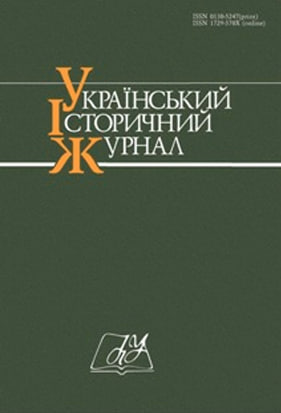Lithuanian-Horde Relations of the First Half of the 14th Century, or Once Again About the Embassy of Prince Koriat Gedyminovych to Djanibek Khan in 1348
DOI:
https://doi.org/10.15407/uhj2023.04.125%20Keywords:
Grand Duchy of Lithuania, Ulus of Jochi, Volyn land, Halych land, Grand Duchy of Moscow, Polish Kingdom, Byzantine EmpireAbstract
The article examines Lithuanian-Tatar relations from the the first half of the 14th century, where the primary attention was devoted to the embassy of Prince Koriat Gedyminovych to Djanibek Khan in 1348.
The article’s purpose is to find out the relation’s nature of the Lithuanian state with the Tatars in the first half of the 14th century and to in vestigate the regularities of the spread of Lithuanian power over Volyn and Halych lands as a constituent part of Ulus of Jochi, the reasons, and circumstances of the Lithuanian embassy to the Horde in 1348.
Scientific innovation. The spread of Lithuanian power over the Volyn and Halych lands is considered in a broad historical context, not in a Eurocentric vision, and through the prism of the supreme subordination of these lands to the khans of Ulus of Jochi.
Conclusions. Until the beginning of the 13th century, contacts between Lithuanians and Tatars were sporadic, where the latter mostly helped defend the interests of the Halych-Volyn princes. Territorial expansion of the Grand Duchy of Lithuania did not affect the interests of Ulus of Jochi until the beginning of the 40s 14th century. It didn’t lead to a confrontation between them. The expansion of the power of the Lithuanian prince Lubart in 1341, first to Volyn and then to Halych lands, was mainly due to the permission of Djanibek Khan. Contrary to the widespread belief that Koriat’s embassy to Djanibek aimed to enlist Tatar’s military support, the Grand Duke of Lithuania did not need such help.


